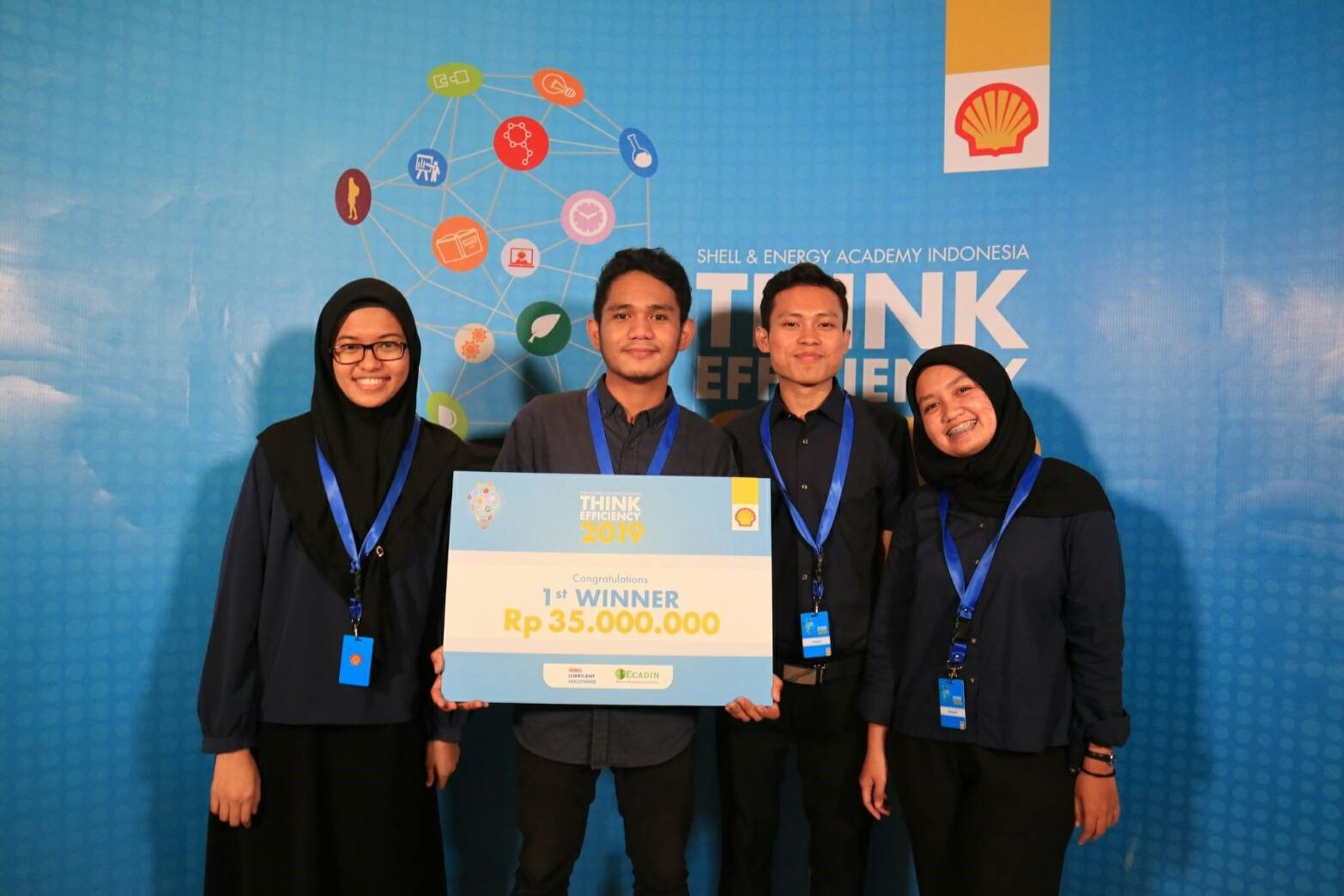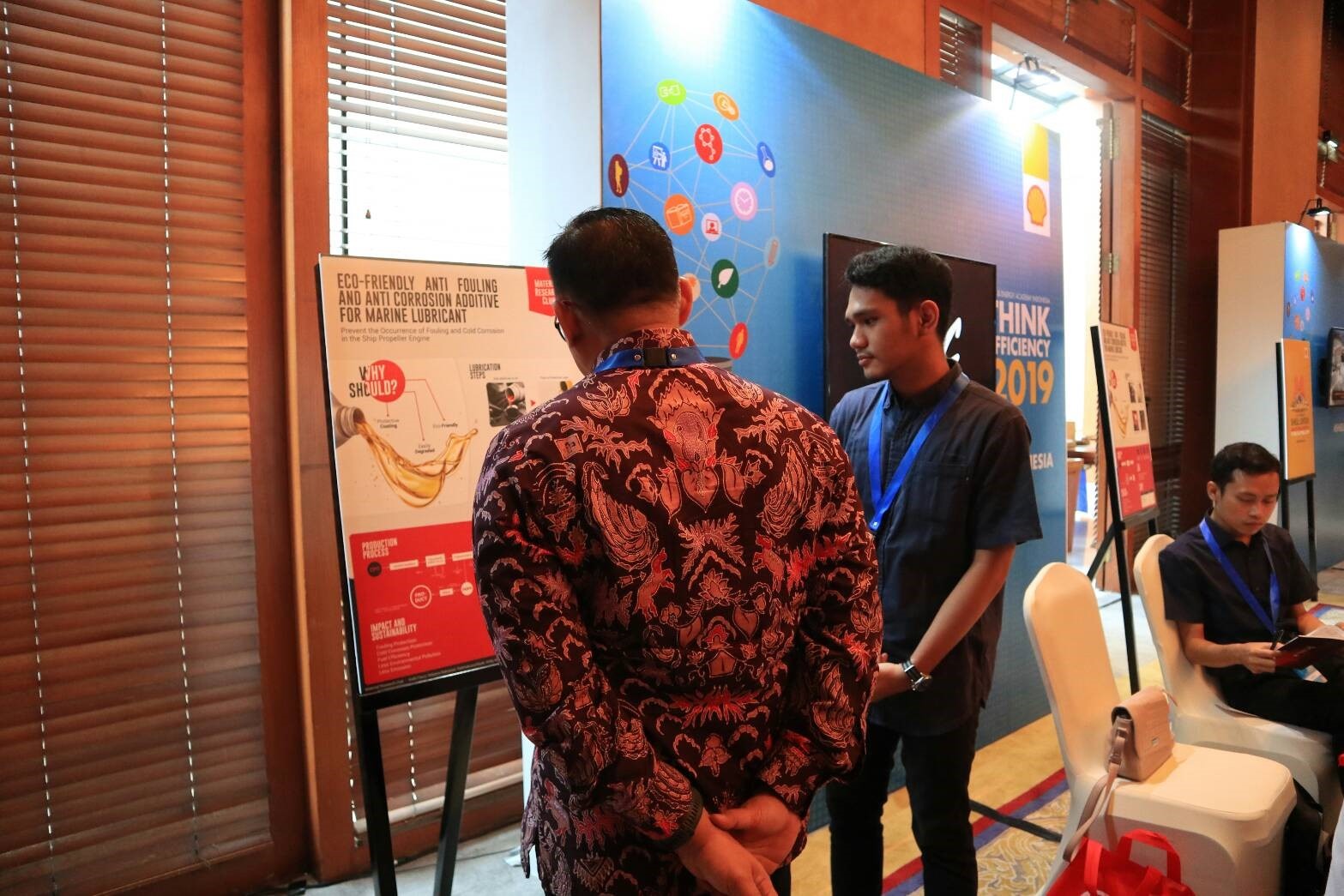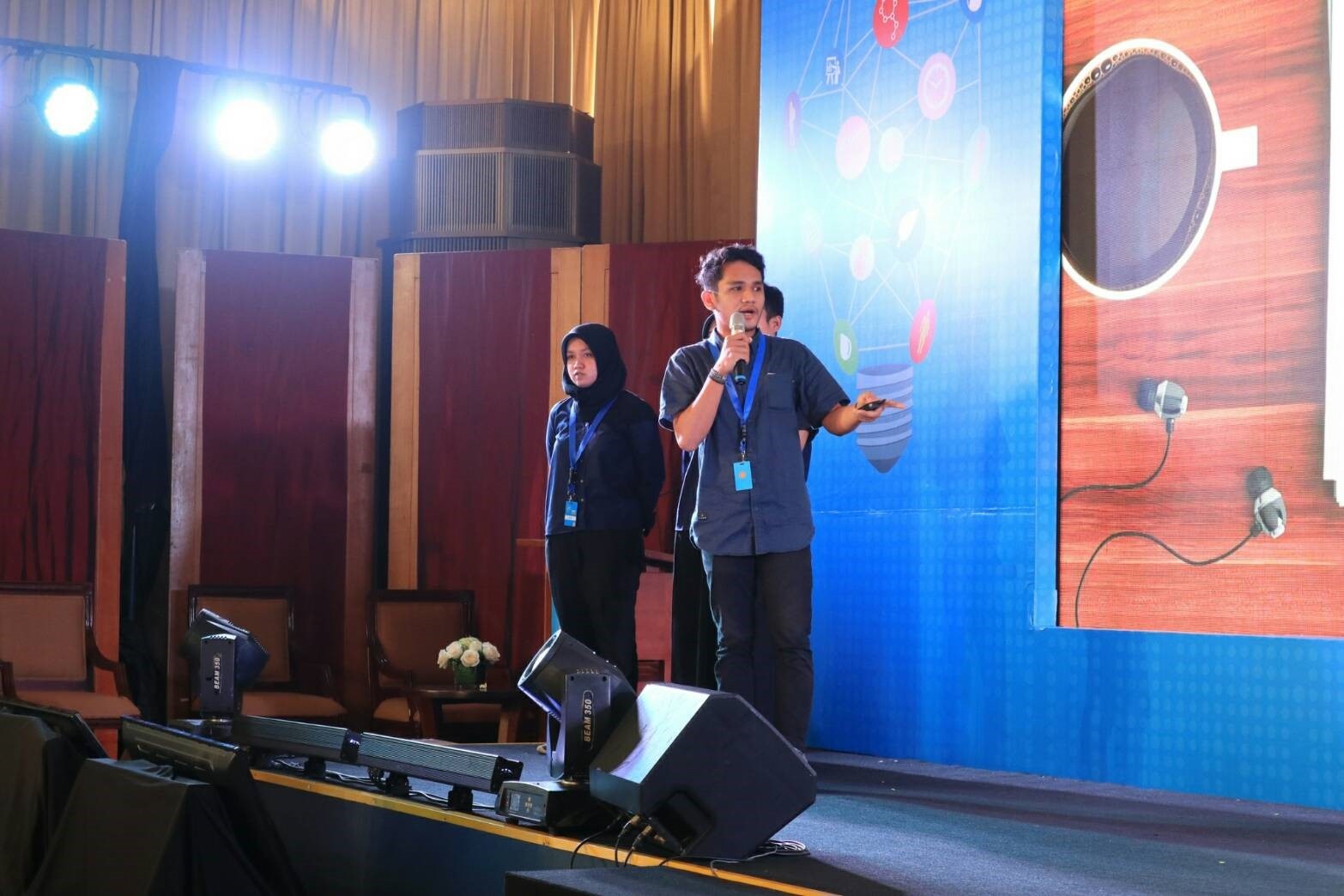Develop Additive Lubricants for Ship’s Engines, ITS Student Wins A Champion

The MRC team take a picture together after successfully achieving the best predicate on tribology innovations
ITS Campus, ITS News – until now, the use of lubrication technology or tribology in Indonesia is still very minimal. This technology has a huge profit potential if well developed. Set in this fact, four of Institut Teknologi Sepuluh Nopember (ITS) students in the Material Research Club (MRC) team raised innovations in Eco-friendly Anti Fouling and Anti Corrosion Additive for Marine Lubricating on Think Efficiency 2019. As a result, in the competition held at The Dharmawangsa Hotel Jakarta, Thursday (20/8), the MRC team made it out in first place.
Andri Fauzi, Delyana Ratnasari, Vicky Aziz, and Halimatussa’diyah the members in the MRC compete in this competition who focused on the development of ship engine lubrication additives lubricants. Andri Fauzi as the leader of the team revealed, in this competition which is a cooperation between Shell Indonesia and Energy Academy Indonesia (Ecadin), Andri and his team focus on developing additives lubricants. Since the better the disposal additive is used, the vessel machine can operate at a lower temperature compared to the operating temperature in general.
“Besides, this additive innovation is also one of our efforts (MRC team, red) to reduce the emission of vessel machinery that is potentially damaging to the environment, ” explained students who familiarly called Andri.
Andri said that the innovation is expected to help the ship’s engine to operate without interruption. The disorder is cold corrosion phenomenon. This phenomenon results in the sulfur condensation to react with acidic oxygen so that it can damage the piston material on the inside of the vessel machine. Besides, this phenomenon also potentially triggers the occurrence of fouling which potentially reduces the fuel efficiency used. Environmental aspects are also affected if the emissions are too big.
Furthermore, to produce a much more environmentally friendly product he and his team use palm oil whose use is currently decreasing by the process of esterification as an additive. Through this process will be obtained two core polymer namely PAMA and OCP. Both of these polymers will then be further processed into co-polymer through the polymerization process.
Students of the Department of Material Engineering said that after the polymerization process, the co-polymer will be added to the lubricant with a predetermined level and will form a protective coating (coating) in the vessel piston. With this fairly easy application, by adding only two percent of additives per one liter of lubricant, the positive value of innovation. The good miscibility factor of the additive also makes it able to mix with lubricants with predefined levels. Thus, the failure of the vessel machine can be avoided.
With these advantages, the team who comes from the scientific club that was newly pioneered in the Department of Material Engineering was achieved champion of defeating his opponents in the category of Tribology Innovations. According to Andri, his team managed to outperform other teams because of the idea and solution of the MRC team directly on the problem in the form of finished products. Meanwhile, other teams focus only on lubrication surveillance systems that are not feasible for lubrication replacement can be optimal. Likewise with other detection methods.
For the future, the MRC team hopes that this research can encourage other innovations and can be done further testing to help solve the problem of marine transportation in Indonesia. “Hopefully the community more understanding about the importance of the use of tribology in supporting a better environment,” said Andri. (lut/rur/rev)

The booth’s introduction to the additive lubricants innovations on the ship’s engine to Shell Indonesia invited guests
Related News
-
Gains Up 300 Percent, ITS Targets Increase in Scholarship Recipients
ITS Campus, ITS News – In the period 2020 – 2023, the scholarship disbursement budget collected by Institut Teknologi
September 26, 2019 20:09 -
Gains Up 300 Percent, ITS Targets Increase in Scholarship Recipients
ITS Campus, ITS News – In the period 2020 – 2023, the scholarship disbursement budget collected by Institut Teknologi
September 26, 2019 20:09 -
ITS students attend an international oil and gas conference in Saudi Arabia
ITS Campus, ITS News – Students from the Department of Ship Systems Engineering at Institut Teknologi Sepuluh Nopember (ITS)
September 26, 2019 20:09 -
ITS students attend an international oil and gas conference in Saudi Arabia
ITS Campus, ITS News – Students from the Department of Marine Engineering at Institut Teknologi Sepuluh Nopember (ITS) became
September 26, 2019 20:09

